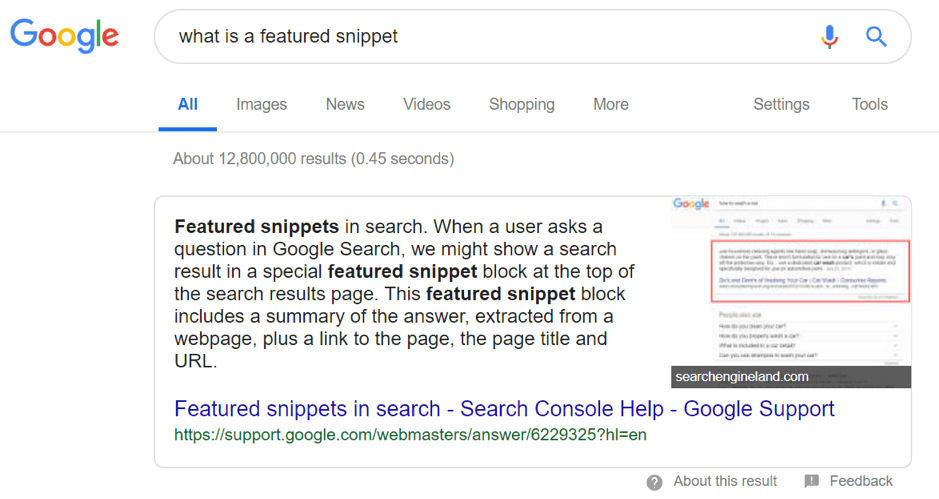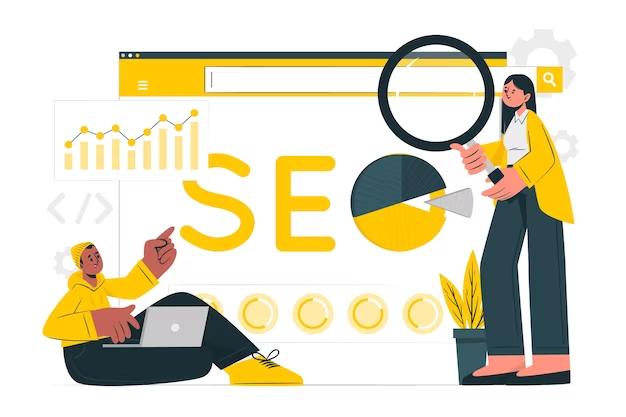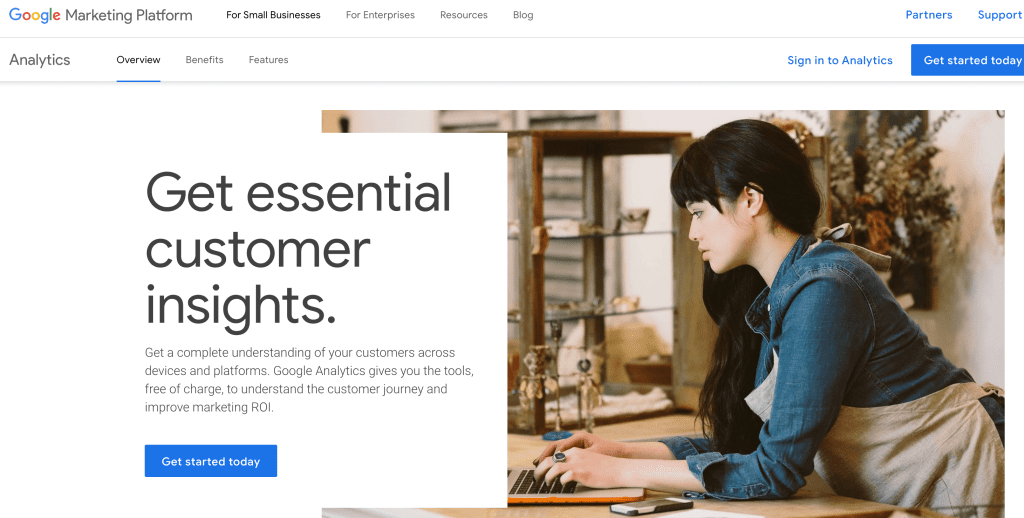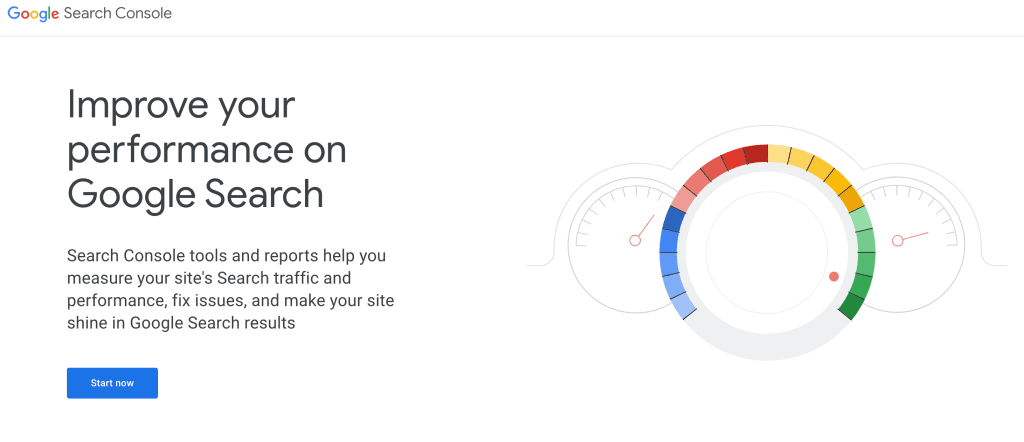Key Takeaways
- Strategic Foundation: Establish a solid SEO foundation for your startup by mastering keyword research, optimizing on-page content, and understanding the intricacies of search engine algorithms.
- Local Dominance: Leverage the power of local SEO to capture the attention of your immediate community.
- Future-Proofing Strategies: Stay ahead of the curve by embracing emerging trends such as voice search, Core Web Vitals, and AI integration. Future-proof your startup’s digital presence with a proactive approach to SEO.
In the fast-paced and ever-evolving digital landscape, startups find themselves navigating a competitive terrain where visibility can make or break their success.
In this dynamic ecosystem, Search Engine Optimization (SEO) emerges as the unsung hero, capable of propelling nascent businesses to the forefront of online prominence.
As startups strive to establish their digital footprint, mastering the art and science of SEO becomes an indispensable ally.
Welcome to our comprehensive guide – an illuminating journey into the realm of “SEO for Startups: A Complete Step-By-Step Guide.”
In this expansive exploration, we delve into the intricacies of SEO, unravelling its profound impact on the growth trajectory of startups.
As we embark on this odyssey, we invite both fledgling entrepreneurs and seasoned business enthusiasts to join us in unravelling the mysteries of SEO and unlocking its transformative potential for startups.

The Power of SEO Unveiled
In the digital age, where information is king and online presence reigns supreme, SEO emerges as the linchpin that can catapult startups from obscurity to prominence.
It is more than just a buzzword; it’s a strategic imperative that empowers startups to not only be discovered by their target audience but to thrive in the fiercely competitive online arena.
Imagine having an ingenious product or service, a stellar website, and an innovative business model – yet struggling to attract the attention your startup deserves.
This is where SEO steps in as a guiding force, a beacon that ensures your offerings are not lost in the vast expanse of the internet.
Our step-by-step guide is crafted with the understanding that startups need more than mere survival; they need to flourish and command attention.
Navigating the SEO Landscape
For startups unacquainted with the intricacies of SEO, the landscape might seem daunting, shrouded in jargon and algorithms. Fear not, as this guide is designed as your compass through the digital wilderness.
As we unfold the layers of this guide, you’ll discover the essence of keyword research, the artistry behind on-page optimization, the technical wizardry required for a seamless user experience, and the strategic prowess of off-page SEO.
Moreover, we illuminate the often overlooked realm of local SEO – a game-changer for startups aiming to establish a strong community presence.
A Living, Breathing Guide
In the ever-evolving landscape of digital marketing, standing still is akin to moving backwards.
With this in mind, our guide doesn’t merely equip you with static knowledge; it’s a living, breathing resource that adapts to the dynamic shifts in search engine algorithms, user behaviour, and industry trends.
From the latest updates to emerging technologies, we ensure that you stay ahead of the curve, positioning your startup as an agile player in the digital arena.
Embark on this journey with us, where each section is a gateway to unlocking the full potential of your startup through the strategic implementation of SEO.
Whether you’re a solo entrepreneur with a groundbreaking idea or a seasoned professional venturing into the startup landscape, this guide is tailored to demystify SEO, empowering you to harness its transformative power.
So, fasten your seatbelts as we embark on a journey that transcends the conventional – “SEO for Startups: A Complete Step-By-Step Guide” awaits, promising not just theoretical knowledge but a roadmap for tangible, sustainable success in the digital realm.
Let’s propel your startup to new heights together.
But, before we venture further, we like to share who we are and what we do.
About AppLabx
From developing a solid marketing plan to creating compelling content, optimizing for search engines, leveraging social media, and utilizing paid advertising, AppLabx offers a comprehensive suite of digital marketing services designed to drive growth and profitability for your business.
AppLabx is well known for helping companies and startups use SEO to drive web traffic to their websites and web apps.
At AppLabx, we understand that no two businesses are alike. That’s why we take a personalized approach to every project, working closely with our clients to understand their unique needs and goals, and developing customized strategies to help them achieve success.
If you need a digital consultation, then send in an inquiry here.
SEO for Startups: A Complete Step-By-Step Guide
- Understanding SEO Basics
- Keyword Research for Startups
- On-Page SEO Optimization
- Technical SEO for Startups
- Off-Page SEO Strategies
- Local SEO for Startup Success
- Measuring SEO Success
- SEO Trends and Future Considerations for Startups
1. Understanding SEO Basics
In the rapidly evolving digital landscape, a profound grasp of the fundamental principles of Search Engine Optimization (SEO) is pivotal for startups seeking to establish a formidable online presence.
This section meticulously dissects the core elements of SEO, elucidating its definition, purpose, and critical role in shaping online triumphs.

Definition and Purpose of SEO
Search Engine Optimization, commonly referred to as SEO, is a strategic process geared towards augmenting a website’s visibility on search engines like Google, Bing, and Yahoo.
The primary objective is to bolster organic (non-paid) search rankings, thereby channelling targeted traffic to a website.
SEO encompasses a diverse array of techniques and best practices designed to render a website more appealing to search engine algorithms.
Example: For instance, envision a startup specializing in eco-friendly home products.
By implementing effective SEO strategies, the startup ensures that when users search for terms such as “sustainable home products” or “green living essentials,” their website prominently surfaces in search results, amplifying the prospect of attracting organic traffic.

Importance of Search Engines
Search engines serve as the gateway to the vast reservoir of information accessible on the internet.
Appreciating the pervasive influence of search engines underscores the imperative of optimizing a website to align seamlessly with its algorithms.
Example: Consider a startup operating in the e-commerce sector. Strategic SEO practices ensure that the product pages are meticulously optimized, heightening the likelihood of these pages featuring prominently in pertinent search results.
This, in turn, enhances the prospect of attracting potential customers actively seeking products within that niche.
Key SEO Terminology
To navigate the SEO landscape adeptly, startups must acquaint themselves with pivotal terminology intrinsic to the optimization process.
Keywords
Keywords denote specific terms or phrases that users input into search engines.
Startups must discern and judiciously incorporate relevant keywords into their content to harmonize with user intent.
Example: For a startup oriented towards fitness, strategically targeting keywords like “home workouts,” “healthy recipes,” or “fitness tips” is indispensable to reach the intended audience effectively.

SERP (Search Engine Results Page)
SERP signifies the page exhibited by a search engine in response to a user’s query.
Proficiency in understanding SERP features and optimizing for them is vital for enhancing click-through rates.
Example: Notably, featured snippets, which offer succinct answers to user queries, occupy prominent positions on SERPs. A startup aiming for heightened visibility can optimize content to secure a featured snippet, securing a prime spot on the search results page.

Backlinks
Backlinks denote links from external websites to a startup’s site. High-quality backlinks from authoritative sources augment a website’s credibility and contribute to higher search rankings.
Example: In the tech industry, a startup might strategically collaborate with reputable blogs or industry influencers to secure valuable backlinks, thereby establishing authority within their niche.
2. Keyword Research for Startups
In the expansive digital landscape, where visibility is synonymous with success, keyword research stands as the cornerstone of any effective Search Engine Optimization (SEO) strategy for startups.
This section meticulously unpacks the intricacies of keyword research, providing startups with actionable insights to unearth and leverage the most potent keywords for their specific niche.

Identifying Relevant Keywords for the Startup Niche
Startups must embark on a strategic journey to identify keywords that resonate with their niche and target audience. This involves a nuanced understanding of the industry, consumer behaviour, and the language potential customers use in their online searches.
Industry Analysis
Example: For a startup in the sustainable fashion sector, keywords could include “eco-friendly clothing,” “sustainable fashion brands,” and “ethical apparel.” Analyzing industry trends and consumer preferences is pivotal in pinpointing such keywords.
Consumer Behavior
Example: In the tech startup space, understanding that users may search for “innovative gadgets,” “latest technology trends,” or “best tech startups” allows for the identification of keywords aligned with consumer intent.
Language and Phrasing
Example: A food delivery startup might discover that users commonly search for “quick meal delivery,” “local food delivery services,” or “affordable meal options.” Adapting to the language preferences of the target audience is crucial in selecting relevant keywords.
Tools and Techniques for Effective Keyword Research
To conduct impactful keyword research, startups need to leverage a suite of tools and techniques designed to unveil valuable insights into search trends and user behaviour.
Google Keyword Planner
Example: Utilizing Google Keyword Planner allows startups to explore keyword ideas, understand search volumes, and identify potential competition.
For instance, discovering that “healthy meal plans” have a high search volume might prompt a nutrition-focused startup to incorporate it into its strategy.
Competitor Analysis
Example: Examining competitors’ websites can reveal valuable keywords they are targeting. If a digital marketing startup finds that a competitor ranks well for “social media strategy,” it may decide to target similar keywords in its content.
Long-Tail Keywords
Example: A travel startup might discover that while “European vacations” is competitive, “off-the-beaten-path European destinations” is a less competitive long-tail keyword. Integrating such specific phrases caters to users with distinct search intents.

Analyzing Competitor Keywords and Strategies
Understanding the competitive landscape is instrumental in refining a startup’s keyword strategy. Analyzing competitor keywords and strategies unveils opportunities and informs decisions on where to allocate resources.
Competitor Keywords
Example: If an e-commerce startup observes a competitor excelling in “online shoe sales” and “discount footwear,” it may prioritize similar keywords to tap into the same market.
Backlink Profiles
Example: Exploring competitors’ backlink profiles can reveal authoritative sources. A software startup, for instance, might notice a competitor gaining traction through backlinks from renowned tech blogs, influencing a similar backlink acquisition strategy.
Content Gaps
Example: Identifying gaps in competitors’ content allows startups to fill those voids. For a cybersecurity startup, if competitors lack comprehensive guides on “data encryption best practices,” creating such content could position the startup as an authoritative resource.
Keyword research is not a static endeavor; it’s an ongoing process that requires adaptability and responsiveness to evolving industry dynamics.
By delving into these aspects of keyword research, startups can position themselves strategically in the digital landscape, capturing the attention of their target audience and optimizing their online visibility.
3. On-Page SEO Optimization
In the intricate web of Search Engine Optimization (SEO), On-Page Optimization emerges as a pivotal factor in determining a startup’s visibility and ranking on search engines.
This section meticulously dissects the components of On-Page SEO, providing startups with comprehensive insights and actionable strategies to enhance the relevancy and appeal of their web content.

Creating SEO-Friendly Content
Quality content is the bedrock of On-Page SEO, shaping the digital narrative of a startup and influencing search engine rankings.
Importance of Quality and Relevance
Quality content not only engages users but also satisfies search engine algorithms. Search engines, especially Google, prioritize content that provides value to users.
A study by Backlinko found that longer content does tend to rank best in search engines.
Crafting Compelling Meta Titles and Descriptions
Meta titles and descriptions serve as the first impression users have of a page on search engine results. Crafting compelling titles and descriptions not only boosts click-through rates but also signals to search engines the relevance of the content.
A well-crafted title tag can significantly impact your SEO rankings and attract more clicks.
Example: For a startup offering digital marketing services, a meta title like “Strategic Digital Marketing Solutions for Business Growth” and a concise, compelling description can entice users to click and explore the content.
Optimizing Headings, Subheadings, and Body Content
Structured content not only enhances user experience but also aids search engines in understanding the hierarchy and relevance of information on a page.
Heading Tags (H1, H2, H3, etc.)
Proper use of heading tags provides a hierarchical structure to content. The H1 tag typically represents the main title, and subsequent heading tags organize subtopics. Search engines use this structure to interpret the content’s flow.
Keyword Placement
Strategic placement of target keywords within headings, subheadings, and the body of the content reinforces the content’s relevance to search engines.
Example: In an article about “Effective Social Media Strategies,” ensuring the main keyword “social media strategies” appears in the H1 tag and naturally within the content reinforces its SEO relevance.
Image Optimization for Better Search Engine Rankings
Optimizing images is often overlooked but is crucial for a comprehensive On-Page SEO strategy.
Image Alt Text
Alt text provides a textual description of images, aiding search engines in understanding the content. Utilizing descriptive alt text not only enhances accessibility but also contributes to SEO.
File Names and Formats
Naming image files descriptively and using web-friendly formats contribute to faster loading times, a factor that search engines consider in ranking pages.
Example: For an e-commerce startup selling handmade crafts, an image file named “handcrafted-wooden-clock.jpg” with descriptive alt text like “Artisanal Wooden Clock – Handcrafted Home Decor” adds context for both users and search engines.
On-Page SEO optimization is an ongoing process that requires a keen eye for detail and a commitment to delivering value to users. By adhering to these principles, startups can fortify their digital presence and ascend the ranks of search engine results.
4. Technical SEO for Startups
In the dynamic realm of Search Engine Optimization (SEO), Technical SEO constitutes the backbone of a startup’s digital infrastructure.
This section meticulously explores the intricacies of Technical SEO, providing startups with actionable insights and strategies to optimize their website’s technical aspects for enhanced search engine visibility and performance.

Importance of a Crawlable and Mobile-Friendly Website
A website’s crawlability and mobile-friendliness are critical factors influencing search engine rankings and user experience.
Crawlability
Search engines utilize crawlers to navigate and index web pages. Ensuring a website is easily crawlable allows search engines to comprehensively index its content.
Mobile-Friendly Design
With the increasing prevalence of mobile device usage, Google has prioritized mobile-first indexing.
A responsive and mobile-friendly design not only enhances user experience but also aligns with Google’s indexing preferences.
Example: A startup in the travel industry, with a user-friendly and easily navigable website, ensures that search engine crawlers can efficiently index its rich travel content, potentially leading to improved rankings.
Implementing Proper URL Structures
An organized and logical URL structure contributes to both user experience and search engine understanding of a website’s content.
Descriptive URLs
Using descriptive and concise URLs that convey the content’s topic aids both users and search engines in understanding the page’s context. A study by Backlinko suggests that short URLs tend to rank slightly better than long URLs.
URL Hierarchy
Organizing URLs hierarchically reflects the structure of the website. For example, a blog post about “Digital Marketing Strategies” could have a URL like “/blog/digital-marketing-strategies.”
Example: An e-commerce startup focusing on handmade jewellery may structure its product pages with clear and concise URLs, such as “/shop/handmade-necklaces.”
Optimizing Website Speed and Performance
Page speed is a crucial ranking factor, influencing both user satisfaction and search engine preferences.
Loading Times
Google emphasizes the importance of fast-loading pages, and studies reveal a direct correlation between page speed and user engagement. According to Google, the probability of bounce increases by 32% as page load time goes from 1 second to 3 seconds.
Compression and Image Optimization
Compressing files and optimizing images reduce page load times. Tools like Google’s PageSpeed Insights can provide specific recommendations for improving website speed.
Example: A startup offering SaaS solutions can enhance its website’s loading speed by compressing large images on its homepage, ensuring that potential customers experience swift and seamless navigation.
In the intricate tapestry of Technical SEO, startups can strategically leverage these principles to fortify the foundation of their digital presence.
By prioritizing crawlability, mobile-friendliness, logical URL structures, and optimized website speed, startups can not only meet the criteria set by search engines but also provide a seamless and rewarding experience for their users.
5. Off-Page SEO Strategies
In the intricate tapestry of Search Engine Optimization (SEO), Off-Page strategies wield a profound influence on a startup’s online presence, extending beyond the confines of the website itself.
This section meticulously unravels the nuances of Off-Page SEO, offering startups actionable insights and strategies to enhance their digital footprint through external factors and signals.

Building High-Quality Backlinks
Backlinks, or inbound links from external websites, remain a cornerstone of Off-Page SEO, impacting a website’s authority and search engine rankings.
Outreach Strategies for Link Building
Proactive outreach to relevant websites and influencers in the industry can result in valuable backlinks. The more backlinks from unique websites (referring domains) you have, the more traffic you’re likely to get.
Guest Posting and Collaboration Opportunities
Contributing high-quality content to authoritative websites in exchange for backlinks is a strategic approach. For example, a startup in the finance sector might publish a guest post on a reputable finance blog, earning a backlink in the process.
Example: A tech startup specializing in artificial intelligence may collaborate with industry thought leaders, participating in webinars or podcasts, thereby gaining backlinks and establishing authority within the AI community.
Utilizing Social Media for SEO Benefits
While social media is traditionally considered a realm of Off-Page SEO, its impact on search engine rankings is noteworthy.
Social Signals
Social signals, such as likes, shares, and comments on social media platforms, can indirectly influence search rankings.
Brand Mentions and Citations
Positive mentions of a startup across social media platforms contribute to its online reputation. These brand mentions, even without direct links, can impact search visibility.
Example: A lifestyle startup might cultivate an active presence on Instagram, leveraging influencers to showcase its products. The resulting social signals and brand mentions contribute to a positive online presence.
Online Reputation Management for Startups
Reputation management transcends traditional PR, extending to online platforms and reviews.
Google My Business Registration
For local SEO, registering on Google My Business is crucial. Verified businesses on Google My Business are more likely to appear in local search results.
Customer Reviews and Testimonials
Positive reviews on platforms like Google, Yelp, or industry-specific review sites not only enhance a startup’s reputation but also influence search engine rankings. 76% of consumers “regularly” read online reviews when browsing for local businesses.
Example: A restaurant startup can actively encourage satisfied customers to leave positive reviews on platforms like Yelp, enhancing its local SEO visibility.
In navigating the landscape of Off-Page SEO, startups can strategically harness the power of external signals.
By building high-quality backlinks, leveraging social media for brand signals, and managing their online reputation effectively, startups can foster a robust digital presence that extends far beyond the confines of their website.
6. Local SEO for Startup Success
In the digital age, where the locality of businesses is becoming increasingly significant, Local SEO emerges as a potent tool for startups seeking to establish a strong foothold in their communities.
This comprehensive section unravels the intricacies of Local SEO, offering startups actionable insights and strategies to optimize their online presence for local searches and community engagement.

Registering on Google My Business
Google My Business (GMB) is the linchpin of Local SEO, providing startups with a prominent presence on Google’s search results and maps.
Importance of GMB Registration
GMB listings significantly influence local search results.
Verifying Business Information
Ensuring accurate and consistent business information, including the name, address, and phone number (NAP), is crucial for GMB optimization.
Example: A local coffee shop startup can optimize its GMB listing by providing detailed business information, including its operating hours, photos of the interior, and links to the menu.
Optimizing Local Citations and Directories
Consistent business information across online directories and citations contributes to local search authority.
NAP Consistency
Maintaining uniformity in the business name, address, and phone number across online platforms is vital. Inconsistencies can lead to confusion and hinder local search visibility.
Quality of Citations
Acquiring citations from reputable and relevant directories contributes to a startup’s local authority. 88% of consumers trust online reviews as much as personal recommendations from friends.
Example: A plumbing startup can ensure NAP consistency by listing its business information accurately on platforms like Yelp, Angie’s List, and local chamber of commerce websites.
Encouraging Customer Reviews and Testimonials
Positive reviews on local review platforms not only enhance a startup’s reputation but also influence local search rankings.
Impact of Reviews on Local SEO
90% of consumers read online reviews before visiting a business, and 84% of people trust online reviews. as much as a personal recommendation. Positive reviews contribute to higher local search rankings.
Active Engagement with Reviews
Responding to reviews, both positive and negative, demonstrates active engagement. Google takes into account the responsiveness to reviews as a local search ranking factor.
Example: A local fitness studio can encourage satisfied clients to leave positive reviews on platforms like Google and Yelp, reinforcing its positive reputation in the community.
Local SEO is not merely a checklist; it’s an ongoing strategy that requires continual refinement and engagement.
By registering on Google My Business, optimizing local citations, and actively encouraging customer reviews, startups can amplify their visibility in local searches, fostering a strong connection with their immediate community.
7. Measuring SEO Success
Measuring the success of Search Engine Optimization (SEO) efforts is crucial for startups looking to gauge the impact of their strategies and refine their approach.
This extensive section delves into the metrics, tools, and methodologies essential for accurately assessing SEO success, providing startups with actionable insights to continually optimize their online presence.

Setting Up Google Analytics and Google Search Console
Google Analytics Metrics
- Traffic Sources: Analyzing the sources of website traffic (organic, direct, referral, etc.) provides insights into the effectiveness of SEO strategies in driving organic visits.
- Bounce Rate: A high bounce rate may indicate issues with content relevance or user experience.

Google Search Console Metrics
- Click-Through Rate (CTR): Monitoring the CTR for specific keywords and pages helps evaluate the effectiveness of meta titles and descriptions. A higher CTR often correlates with better search rankings.
- Indexing Status: Ensuring that search engines have successfully indexed a website’s pages is critical for visibility. Google Search Console provides insights into indexing status and potential issues.

Example: A startup blog focused on digital marketing can use Google Analytics to track the traffic coming from organic searches, evaluating the effectiveness of SEO strategies in attracting relevant audiences.
Monitoring Key Performance Indicators (KPIs)
Establishing and tracking key performance indicators (KPIs) is essential for measuring the broader impact of SEO efforts.
Organic Traffic Growth
Example: Over a specific period, a local bakery can monitor the growth in organic traffic to its website.
Keyword Rankings
Example: A software startup targeting specific keywords related to its product can track the rankings of those keywords over time. Advancing from position 15 to position 5 indicates progress in SEO efforts.
Conversion Rates
Example: An e-commerce startup can analyze the conversion rates of organic traffic. If the conversion rate for organic visitors is higher than the site average, it suggests effective SEO targeting.
Making Data-Driven Adjustments Based on Performance Metrics
Data-driven decision-making is paramount for continually refining and adapting SEO strategies.
Content Performance Analysis
Regularly assessing the performance of individual pages, blog posts, or product pages allows startups to identify high-performing content and replicate successful strategies.
Backlink Profile Evaluation
Monitoring the acquisition of backlinks and their impact on search rankings helps startups refine their outreach and link-building strategies.
Example: A local service startup can analyze the performance of location-specific landing pages. If a page catering to a specific neighborhood consistently attracts organic traffic, the startup can optimize other pages similarly.
Common SEO Pitfalls to Avoid
While measuring success is crucial, it’s equally important to be aware of common pitfalls that can hinder SEO performance.
Keyword Stuffing and Black-Hat Techniques
Overloading content with keywords or resorting to unethical practices can lead to penalties from search engines, negatively impacting rankings.
Neglecting Mobile Optimization
With the increasing prevalence of mobile searches, neglecting mobile optimization can result in a significant loss of potential organic traffic. In January 2023, mobile devices excluding tablets accounted for nearly 57 percent of web page views worldwide.
Ignoring User Experience (UX)
A poor user experience, including slow loading times and difficult navigation, can contribute to higher bounce rates and diminished search rankings.
8. SEO Trends and Future Considerations for Startups
In the ever-evolving landscape of Search Engine Optimization (SEO), staying abreast of emerging trends and future considerations is paramount for startups aiming to carve a competitive edge in the digital realm.
This comprehensive section explores the current SEO trends and offers insights into the future considerations that startups should embrace to ensure sustained online success.

Voice Search Optimization
As voice-activated devices become ubiquitous, optimizing for voice search is a crucial trend that startups need to embrace.
Importance of Voice Search
The rising prevalence of virtual assistants like Siri, Alexa, and Google Assistant has led to an increase in voice searches. Forecasts suggest that by 2024, the number of digital voice assistants will reach 8.4 billion units.
Optimizing for Conversational Queries
Startups can optimize content for natural language and long-tail conversational queries.
For example, a local restaurant can focus on content that answers questions like, “What are the best Italian restaurants near me?”
Core Web Vitals and Page Experience
Google’s emphasis on user experience through Core Web Vitals has become a significant ranking factor.
Core Web Vitals Defined
Core Web Vitals include metrics like Largest Contentful Paint (LCP), First Input Delay (FID), and Cumulative Layout Shift (CLS), which measure loading performance, interactivity, and visual stability, respectively.
User-Centric Approach
Prioritizing a user-centric approach to website design and performance can positively impact search rankings. Your page experience can impact how your site ranks in Search results.
Mobile-First Indexing
With the majority of internet users accessing content on mobile devices, Google has shifted to mobile-first indexing.
Mobile-First Importance
Mobile-first indexing means Google predominantly uses the mobile version of the content for indexing and ranking.
Responsive Design and Mobile Optimization
Startups should prioritize responsive design and mobile optimization to ensure a seamless experience for mobile users, positively influencing search rankings.
E-A-T and Content Quality
Google places a strong emphasis on Expertise, Experience, Authoritativeness, and Trustworthiness (E-E-A-T) when evaluating content.
E-E-A-T in Rankings
Websites and content that demonstrate high levels of E-E-A-T are more likely to rank well. For instance, a health-related startup should ensure content is authored or reviewed by experts in the field.
Fact-Checking and Citations
Verifying information, citing reputable sources, and ensuring accuracy contribute to E-E-A-T. Startups should focus on building trust through transparent and well-supported content.
Artificial Intelligence (AI) and Machine Learning (ML)
AI and ML are playing an increasingly significant role in shaping search engine algorithms and results.
RankBrain and Algorithm Enhancements
Google’s RankBrain, an AI algorithm, interprets user queries and refines search results. Staying informed about AI advancements is essential for startups aiming to align their strategies with evolving algorithms.
Content Generation and Personalization
AI can be leveraged for content generation and personalization, ensuring that content resonates with specific audience segments. An e-commerce startup, for example, might use AI to personalize product recommendations based on user behavior.
Video Content and Visual Search
The consumption of video content is on the rise, and visual search is gaining prominence.
Video Content Impact
Startups should incorporate video content in their SEO strategy to engage audiences.
Visual Search Potential
Visual search enables users to search using images. Pinterest Lens and Google Lens are examples of visual search tools. Startups in the fashion or e-commerce space can optimize for visual search by providing clear and descriptive images.
Conclusion
Embarking on the journey of establishing a startup demands not just innovation and resilience but also a strategic and nuanced approach to digital visibility.
In this comprehensive guide, we’ve meticulously navigated the realm of SEO for startups, unraveling a step-by-step guide that serves as a compass in the ever-evolving digital landscape.
Foundational Steps: Laying the Groundwork for SEO Success
At the heart of our guide lies the foundational understanding that a startup’s digital success is intricately tied to its visibility on search engines.
Commencing with the rudiments of understanding SEO and its nuances, startups are empowered to grasp the significance of keyword research, the lifeblood that fuels their online presence.
By delving into the psyche of their target audience and aligning with industry trends, startups can unearth the keywords that serve as gateways to their digital storefronts.
On-Page Excellence: Crafting a Digital Narrative that Resonates
The journey doesn’t halt at keyword identification; it extends into the realm of on-page SEO optimization, where startups craft their digital narratives with precision.
From structuring content with strategic heading tags to optimizing images for a seamless user experience, the on-page strategies outlined in this guide empower startups to not only communicate effectively with their audience but also resonate with the algorithms that govern search engine rankings.
Off-Page Prowess: Amplifying Reach Beyond the Website’s Borders
Acknowledging the importance of external signals, our guide navigates startups through the intricacies of off-page SEO.
From the art of building high-quality backlinks that elevate authority to leveraging social media as a conduit for brand signals, startups are equipped with the tools to amplify their reach beyond the confines of their websites.
The significance of online reputation management serves as a beacon, guiding startups in cultivating a positive digital persona that reverberates across review platforms and local directories.
Local SEO: Thriving in the Neighborhood and Beyond
Recognizing the pivotal role of locality, our guide delves into the intricacies of local SEO.
By harnessing the power of Google My Business, optimizing local citations, and encouraging customer reviews, startups can etch their presence into the local landscape, capturing the attention of the communities they serve.
The importance of understanding and adapting to the mobile-first paradigm ensures startups remain not just visible but accessible in an era dominated by handheld devices.
Measuring Success: A Metrics-Driven Journey to Perfection
In the dynamic realm of SEO, success is not an endpoint but a journey of continual refinement.
Armed with insights from Google Analytics and Google Search Console, startups can measure the impact of their strategies, adjusting courses based on data-driven decisions.
From monitoring organic traffic growth and keyword rankings to evaluating conversion rates, startups have at their disposal a suite of metrics that unveil the efficacy of their SEO endeavors.
Embracing Trends and Future-Proofing Strategies
As we conclude this comprehensive guide, it is imperative to cast an eye on the horizon of SEO trends and future considerations.
Voice search, Core Web Vitals, mobile-first indexing, E-A-T principles, AI and machine learning, video content, and visual search—all these elements form the next frontier for startups seeking to not just survive but thrive in the ever-evolving digital landscape.
By embracing these trends and aligning strategies with future considerations, startups position themselves as pioneers, ready to navigate the unknown terrains that lie ahead.
A Digital Odyssey Unfurls
In the grand tapestry of a startup’s digital odyssey, SEO stands as the thread that weaves through every interaction, every click, and every conversion.
This guide is more than a roadmap; it’s a companion for startups, providing insights, strategies, and a compass to navigate the intricate and sometimes daunting terrain of digital visibility.
As startups embark on their journey, armed with the knowledge encapsulated in this guide, they step into a realm where innovation meets optimization, and success is not just a destination but a continuous evolution.
If you are looking for a top-class digital marketer, then book a free consultation slot here.
If you find this article useful, why not share it with your friends and business partners, and also leave a nice comment below?
We, at the AppLabx Research Team, strive to bring the latest and most meaningful data, guides, and statistics to your doorstep.
To get access to top-quality guides, click over to the AppLabx Blog.
People also ask
How to do SEO for startups?
For startups, prioritize SEO by mastering keyword research, optimizing on-page content, and embracing local SEO. Register on Google My Business, cultivate positive reviews, and stay future-focused with trends like voice search and Core Web Vitals. Build a robust digital presence for sustained success.
What is the step-by-step process of SEO?
- Keyword Research: Identify relevant keywords.
- On-Page Optimization: Optimize content, headings, and images.
- Technical SEO: Enhance site structure and performance.
- Local SEO: Register on Google My Business.
- Link Building: Acquire high-quality backlinks.
- Content Creation: Develop valuable, shareable content.
- Analytics: Use tools like Google Analytics for insights.
- Mobile Optimization: Ensure a seamless mobile experience.
- Future-Proofing: Stay updated on SEO trends.
How to learn SEO step by step for beginners?
- Foundational Learning: Grasp SEO fundamentals.
- Online Courses: Enroll in beginner-friendly courses.
- Practical Application: Implement on personal projects.
- Explore Resources: Read blogs, and watch tutorials.
- Join Communities: Engage in SEO forums.
- Stay Updated: Follow industry updates.
- Experiment: Test strategies and analyze results.
- Networking: Connect with SEO professionals.
- Certifications: Pursue recognized certifications for credibility.




































